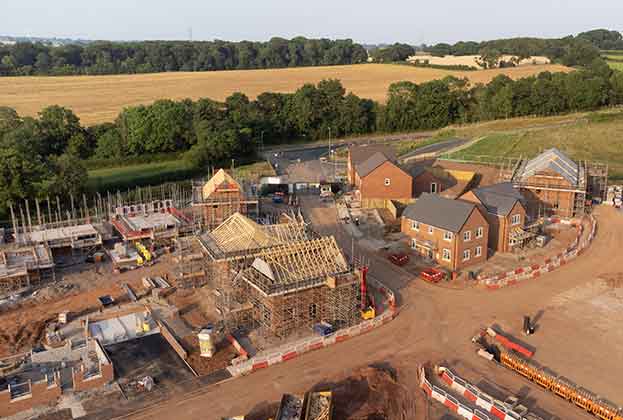It is widely accepted that the future landscape of work and employment will look very different from the one we know now. Disruptive technologies, such as artificial intelligence (AI), virtual reality (VR) and blockchain are already changing the nature of the way we work, as machines are able to carry out work currently done by humans, work alongside us and go beyond human capabilities.
So how would this impact planning?
According to this compelling BBC quiz, there is a 13 per chance that town planners will lose their jobs to robots. However, nothing is that simple. The calculation is made based on the degree of automation relative to other professions and the complex nature of planning work means there are clearly industries where increased automation poses a greater threat.That is not to say, however, that planning is immune.
AI is not only cheaper and more productive than a human workforce, it can work around the clock and work more quickly. It is also quick to learn and can increasingly teach itself without human input. AI moves technological advancements forward from traditional automated efficiencies into efficiencies in terms of thinking and decision-making.
In planning we work in complex situations which require management and understanding of people and landscapes, elements which are not easily put into an algorithm. But there are certainly opportunities for elements of planning to be carried out by machine.
Disruptive technologies such as blockchain offer the opportunity to share vast quantities of information quickly and securely. Rather than sending emails or submitting information on memory sticks, documents and applications can be shared efficiently as the 'middleman' processing data or handling transactions is eliminated. Currently this requires human input to manage but artificial intelligence could quickly learn and facilitate this system.
Planning work also requires an amount of administration which offers an opportunity for improved efficiency with technology. For example, AI could be used to review and validate planning applications – it is already feasible that a program could check the application against validation requirements, introducing an AI capability which can learn what is required for different sites and how to interpret what has been submitted is not a great leap from this.
But planning also requires a degree of creative thinking and interpretation. Surely these elements of the job are safe from technological encroachment? In fact, AI learns from its mistakes and from information it has previously seen, teaching itself the most logical and efficient paths to an end goal.
AI can also be used to model behaviours – based on a site plan, for example, it could plot the most efficient routes around a development, or propose location of green space to make most efficient use of the site. AI could assess sites put forward under a Call for Sites and rank them, then later develop a masterplan based on the information available for the site.
The Future Cities Catapult – an initiative to help develop innovative products and services to meet the changing needs of cities – is already working with central Government to lay the foundations for a data-driven and digitally enabled planning system.
Not only is better information more widely available, open source data and information can improve public engagement, democratising the planning process and resulting in better information and better decisions. Engagement with these tools will enhance our jobs, rather than replace them.
So while planning may not become fully automated any time soon, there are opportunities for increased efficiency and support for planners working across the industry through improved processes and understanding. The 'human' side of planning – interpretation, engagement and understanding nuances – will still be needed but there are opportunities to delegate some functions to robotic colleagues.
Understanding the technology available, both now and in the future, and how this could be applied to the many facets of the planning, is critical to ensure the profession remains future-proof. So while robots may not be taking over our jobs any time soon, they can certainly aid and support them.
Further information




.jpg)
.jpg)
.jpg)
.jpg)
.jpg)

